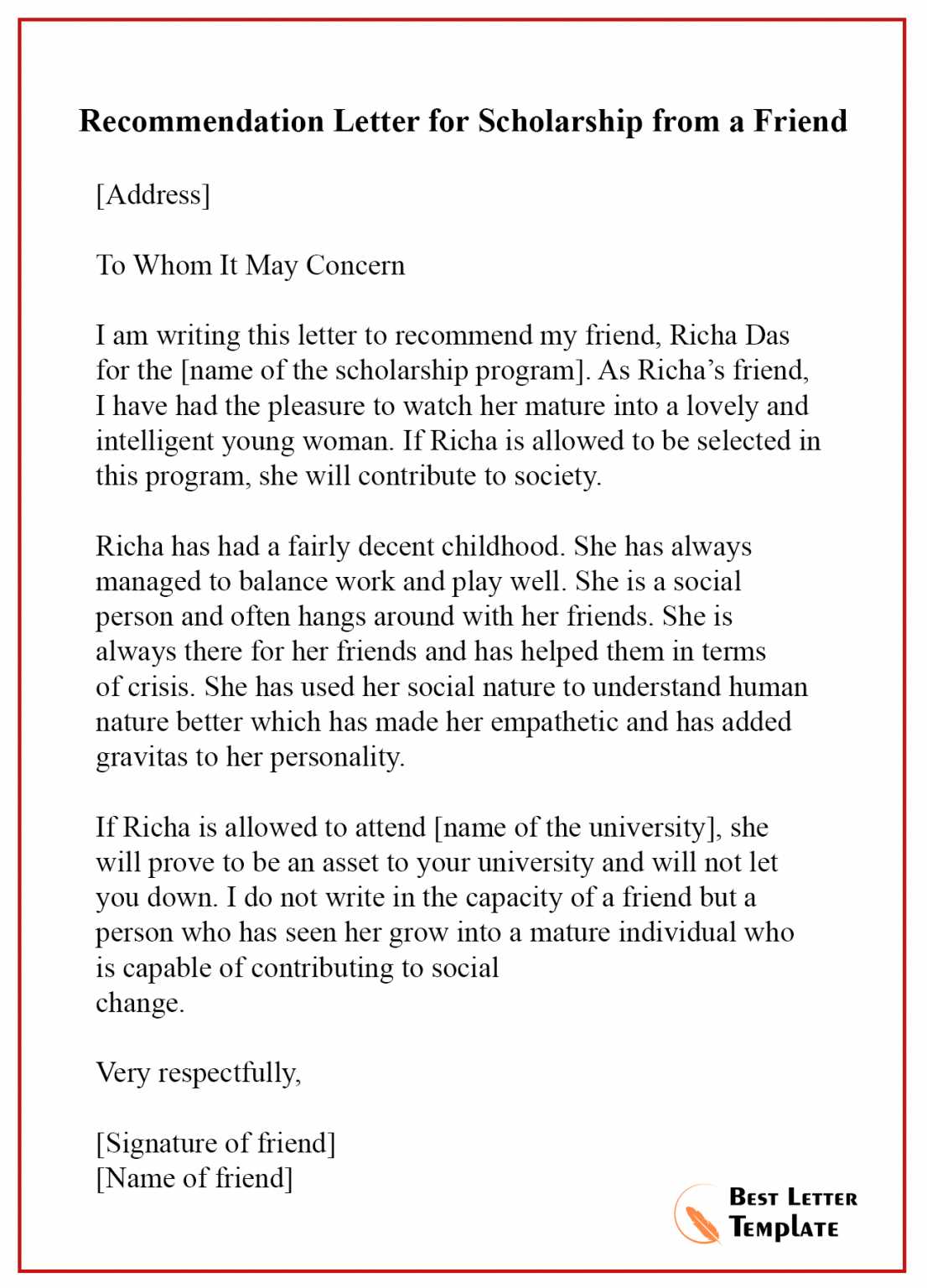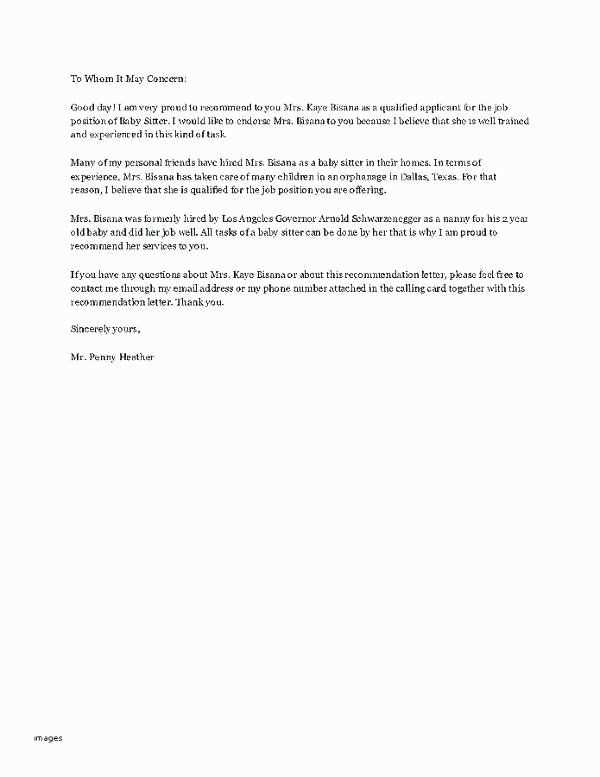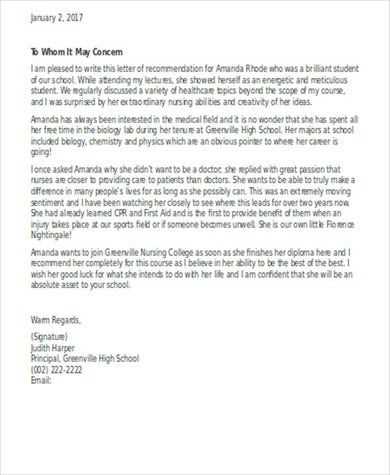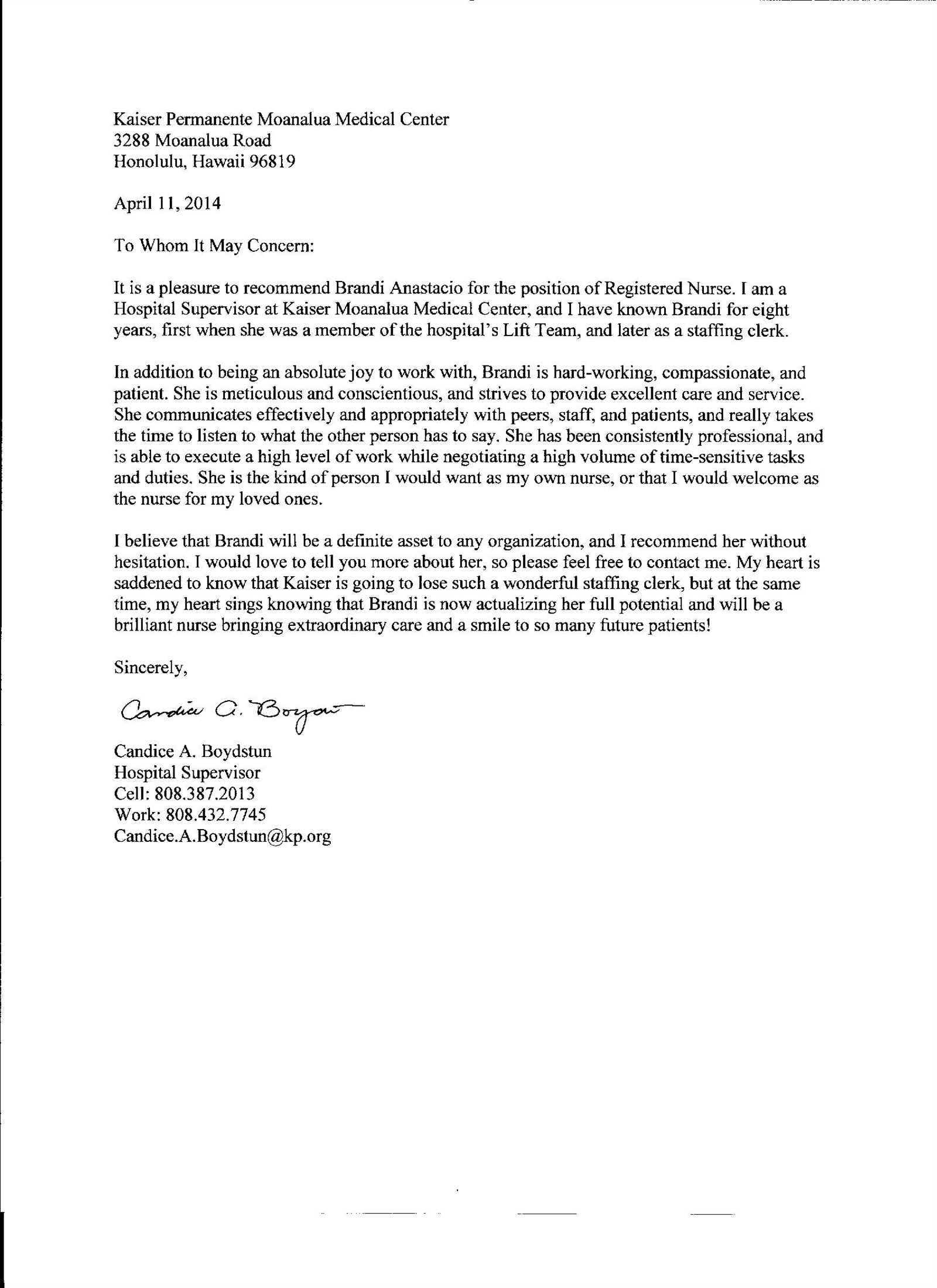Nanny Recommendation Letter Template Guide

When you want to vouch for someone’s abilities, a well-crafted reference can make all the difference. Whether you’re recommending a caregiver or another professional, this type of document can help highlight their strengths and skills effectively. A strong reference provides potential employers or families with the information they need to make confident decisions.
Highlighting the right qualities is essential to ensure that the document serves its purpose. It should clearly outline the individual’s character, work ethic, and contributions to their role. Giving specific examples can further enhance the credibility of your statements.
In this guide, we will explore how to build a compelling and professional reference, covering everything from structure to the key points you should include. By the end, you will have a clear understanding of how to create an impactful recommendation that reflects the strengths of the individual you are supporting.
Why You Need a Caregiver Reference
When seeking a new opportunity or moving to a different role, an individual’s previous experience and reputation often speak louder than their resume. A well-written document that highlights the strengths and qualifications of a caregiver can help to build trust with potential employers. It provides a personal touch, detailing specific examples of how the person has excelled in their duties, which can make all the difference in securing a new position.
Building Trust and Credibility
A detailed reference serves as a tool to establish credibility. It offers a third-party perspective on the person’s skills, behavior, and reliability, which is particularly important for employers looking for someone they can trust with family or household responsibilities. The document provides peace of mind, knowing the individual has been vetted and proven in similar environments.
Supporting Career Advancement
In some cases, a reference can also aid in career growth. It offers evidence of an individual’s qualifications and can open doors to higher-level roles or more reputable families. A strong reference not only reflects past work but also acts as a valuable endorsement for future opportunities.
Essential Elements of a Strong Reference
Creating an impactful reference requires more than just a few kind words. It should include key details that paint a full picture of the person’s character, work ethic, and qualifications. A strong document is clear, specific, and provides examples that back up any claims made about the individual’s skills and qualities.
Introduction and Relationship to the Individual
The opening should establish the connection between the writer and the individual being discussed. It’s important to clarify how long they’ve known each other and in what capacity. This provides context to the rest of the information and helps the reader understand the writer’s perspective.
Key Skills and Attributes
Highlighting the person’s core strengths is crucial for showcasing their suitability for a role. Mentioning specific qualities such as reliability, communication skills, or problem-solving abilities with real-life examples strengthens the reference. The inclusion of these details ensures the letter goes beyond general praise, offering tangible evidence of the individual’s capabilities.
How to Personalize Your Endorsement

Tailoring a reference to highlight the unique qualities of the individual is essential to making it truly effective. Instead of using generic statements, focus on what sets the person apart, such as specific achievements, skills, or personal traits. A personalized reference reflects the individual’s true value and gives employers a deeper insight into their capabilities.
Include Specific Examples

Instead of simply stating that someone is hardworking, provide examples that demonstrate this quality. For instance, describe a situation where they went above and beyond their responsibilities, solving a problem or contributing to a project. These concrete details make the endorsement more relatable and credible.
Match the Reference to the Role
Consider the job or environment the individual is applying for and tailor the reference to suit those needs. Emphasize the skills and qualities that align with the role, whether it’s their ability to handle stress, manage multiple tasks, or connect with people. This ensures the endorsement is relevant and compelling for the prospective employer.
Tips for Writing a Convincing Endorsement

To make your endorsement stand out, it’s important to focus on presenting a clear and authentic picture of the individual. A convincing document should not only highlight their strengths but also provide enough evidence to back up any claims made. Being specific, professional, and honest will greatly increase the credibility of your recommendation.
Be Specific and Concrete
General praise can come across as vague and less credible. Instead of simply saying someone is “great,” describe their achievements and strengths in detail. Mention particular situations where the person excelled, showing how they handled challenges or contributed positively to their environment.
Keep the Tone Professional
While it’s important to show enthusiasm, it’s equally essential to maintain a professional tone throughout the document. Avoid overly casual language and ensure that the endorsement reflects the seriousness of the recommendation. A well-balanced tone will ensure that your message is taken seriously by potential employers or families.
Common Mistakes to Avoid in Endorsements
When crafting a reference, there are certain pitfalls that can weaken its impact. These mistakes can range from overly vague statements to failing to highlight key qualities that matter most. Understanding what to avoid ensures that your endorsement remains powerful and credible.
| Mistake | Why to Avoid It |
|---|---|
| Being Too Generic | General statements like “they’re great” lack substance and don’t provide useful information for the reader. |
| Overly Flattering Language | Excessive praise can come off as insincere or unprofessional, making the endorsement seem less credible. |
| Omitting Specific Examples | Without concrete examples of accomplishments or actions, the endorsement feels less convincing and lacks depth. |
| Using Casual Tone | An overly casual tone can undermine the professionalism of the endorsement, reducing its effectiveness. |
Examples of Effective Caregiver References
An impactful endorsement is more than just a glowing statement–it offers clear, concrete examples that showcase the individual’s strengths. Below are a few examples of effective endorsements that illustrate how to highlight specific skills and experiences in a way that appeals to potential employers.
- Example 1: Responsible and Attentive
“I had the pleasure of working with Jane for over two years, during which she consistently demonstrated exceptional responsibility and attentiveness. She was always on time, communicated effectively with both children and parents, and went above and beyond to ensure a safe and nurturing environment.”
- Example 2: Problem Solver
“Mark quickly adapted to unexpected situations, always thinking ahead to solve problems as they arose. I recall a time when a child was feeling unwell, and Mark took immediate action by contacting the parents and ensuring the child’s comfort until help arrived.”
- Example 3: Strong Communication Skills
“Sarah has a remarkable ability to communicate effectively with both children and adults. She was always in touch with us to update on the children’s progress and any concerns, making sure we were always in the loop.”
- Example 4: Enthusiastic and Caring
“David’s enthusiasm and genuine care for children were evident in everything he did. From engaging in educational activities to fostering a fun and positive atmosphere, he consistently created a loving and exciting environment for the kids.”